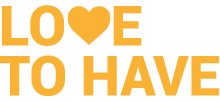SIA Add-on/Bolt-on - Physical Intervention for Healthcare Security Staff
When working in healthcare settings, SIA licence holders often require a different skill set, this will include communication, de-escalation, and physical intervention and restraint skills.
Our course is designed to equip participants with the necessary skills and knowledge to provide effective security services within healthcare settings. The course focuses on understanding the unique challenges and requirements of security in healthcare environments, emphasizing the importance of balancing safety and patient care. Participants will learn about relevant regulations, communication techniques, conflict resolution strategies, and emergency response procedures specific to healthcare security.
What is our SIA Add-on/Bolt-on - Physical Intervention for Healthcare security staff?
Physical intervention is a last-resort option, that without proper training and experience with care never be attempted. It involves using techniques that are proven to be effective and cause as little harm to the individual as possible.
Who can use our SIA Add-on/Bolt-on - Physical Intervention for Healthcare security staff?
Our training course has been developed as a “bolt-on” module for those regulated by the SIA and working within healthcare settings. The physical intervention bolt-on course will cover the use of specialised primary, secondary and tertiary interventions, and responses to prevent harm or manage aggression in critical situations within a healthcare setting.
Is our SIA Add-on/Bolt-on - Physical Intervention for Healthcare security staff safe?
If you use the correct techniques, physical intervention can be done safely. This course has been designed to maintain control while minimising injury risks to all parties involved.
Example interventions include de-escalation strategies, restraint techniques, or guiding individuals with voluntary compliance. The goal will always be to deescalate the situation without needing to intervene physically, but knowing when physical intervention is needed is an important part of an individual’s care.
Our SIA Add-on/Bolt-on - Physical Intervention for Healthcare security staff
Proper training is crucial for physical intervention techniques to ensure their safe and effective implementation. We provide comprehensive training programs that encompass theory knowledge as well as practical skills development related to assessing risk factors for aggression escalation and identifying appropriate interventions accordingly.
Various training programs are available to enhance skills specifically for SIA regulated professionals working within healthcare settings. These programs include topics such as:
- Recognising early signs of aggression
- Effective communication techniques
- De-escalation strategies
- Safe restraint practices
- Safe use of Safer Handling Systems and Soft cuffs
By the end of this course, participants should be able to:
- Understand Healthcare Security Fundamentals:
- Define the role and responsibilities of a security professional within a healthcare setting.
- Explain the importance of maintaining a safe and secure environment for both patients and staff.
- Comprehend Healthcare Regulations and Compliance:
- Familiarize with relevant healthcare regulations, privacy laws and security standards.
- Demonstrate knowledge of how security procedures align with healthcare industry regulations.
- Develop Effective Communication Skills:
- Describe effective communication techniques for interacting with patients, visitors, and healthcare staff.
- Demonstrate the ability to de-escalate conflicts through verbal communication.
- Implement Conflict Resolution Strategies:
- Identify potential sources of conflict in healthcare settings and understand their underlying causes.
- Apply conflict resolution strategies to minimize disruptions and ensure a safe environment.
- Apply Crisis Management and Emergency Response Procedures:
- Describe the importance of emergency preparedness and response in healthcare security.
- Demonstrate proficiency in responding to various emergencies, such as medical incidents, security breaches, and natural disasters.
- Enhance Observation and Surveillance Skills:
- Develop keen observation skills to identify unusual behaviors, potential security risks, and safety hazards.
- Understand the role of surveillance technology in enhancing healthcare security.
- Foster Positive Patient and Visitor Interactions:
- Recognize the unique needs of patients and visitors in a healthcare context.
- Implement practices that promote a welcoming and secure environment for all stakeholders.
- Collaborate with Healthcare Professionals:
- Understand the collaborative nature of healthcare security by working effectively with medical staff and administrators.
- Communicate security-related concerns and collaborate on strategies to address them.
- Handle Ethical and Confidential Information:
- Demonstrate awareness of ethical considerations and the importance of maintaining patient confidentiality.
- Apply ethical principles when dealing with sensitive information and situations.
- Understand SIA Licensing Requirements:
- Familiarize with the Security Industry Authority (SIA) licensing requirements and their relevance to healthcare security roles.
- Develop knowledge and skills necessary to meet the criteria for obtaining an SIA license.
- Apply Practical Skills through Scenario-based Learning:
- Engage in hands-on scenarios and role-play exercises that simulate real-life healthcare security situations.
- Apply acquired knowledge and skills to effectively respond to various security challenges.
This course aims to provide participants with a comprehensive understanding of healthcare security principles and practices, enabling them to contribute to the safety and well-being of patients, visitors, and healthcare staff while adhering to industry regulations and standards.
The course duration can vary based on local needs, but ideally, the course is offered on a 1 to 3-day basis.


